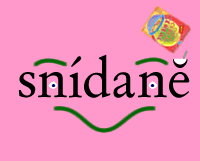Yesterday I climbed Snowdon (Yr Wyddfa) for the first time. It was a warm sunny day, though a bit hazy, and the views were spectacular – there are some photos on Flickr. When I say that I climbed Snowdon, what kind of activity does that conjure up for you?
I went up the Miners Track from Pen y Pass and then descended by way of the Llanberis Path. In places the Miners Track is very step and hands are needed to help you up or down, while you can walk up and down the Llanberis Path relatively easily, or even run, if you’re feeling very energetic. So no actual climbing, as in climbing up or down rock faces, was involved. Other routes up Snowdon might require that kind of climbing.
The OED defines climb as:
1. To raise oneself by grasping or clinging, or by the aid of hands and feet; ‘to mount by means of some hold or footing’ (Johnson); to creep up; to ascend, come, or go up, a perpendicular or steep place.
2. To ascend (anything steep) by hands and feet, creep up; to get to the top or summit of; to mount, scale.
It comes from the Old English climb-an, clamb (clǫmb), clumbon, clumben, which is believed to be a nasalized form of the Germanic *klîƀan (to cleave).
So I did climb in the sense that I ascended or scaled the mountain, though didn’t need to use my hands or to grasp or cling very much, and I didn’t creep up either.

